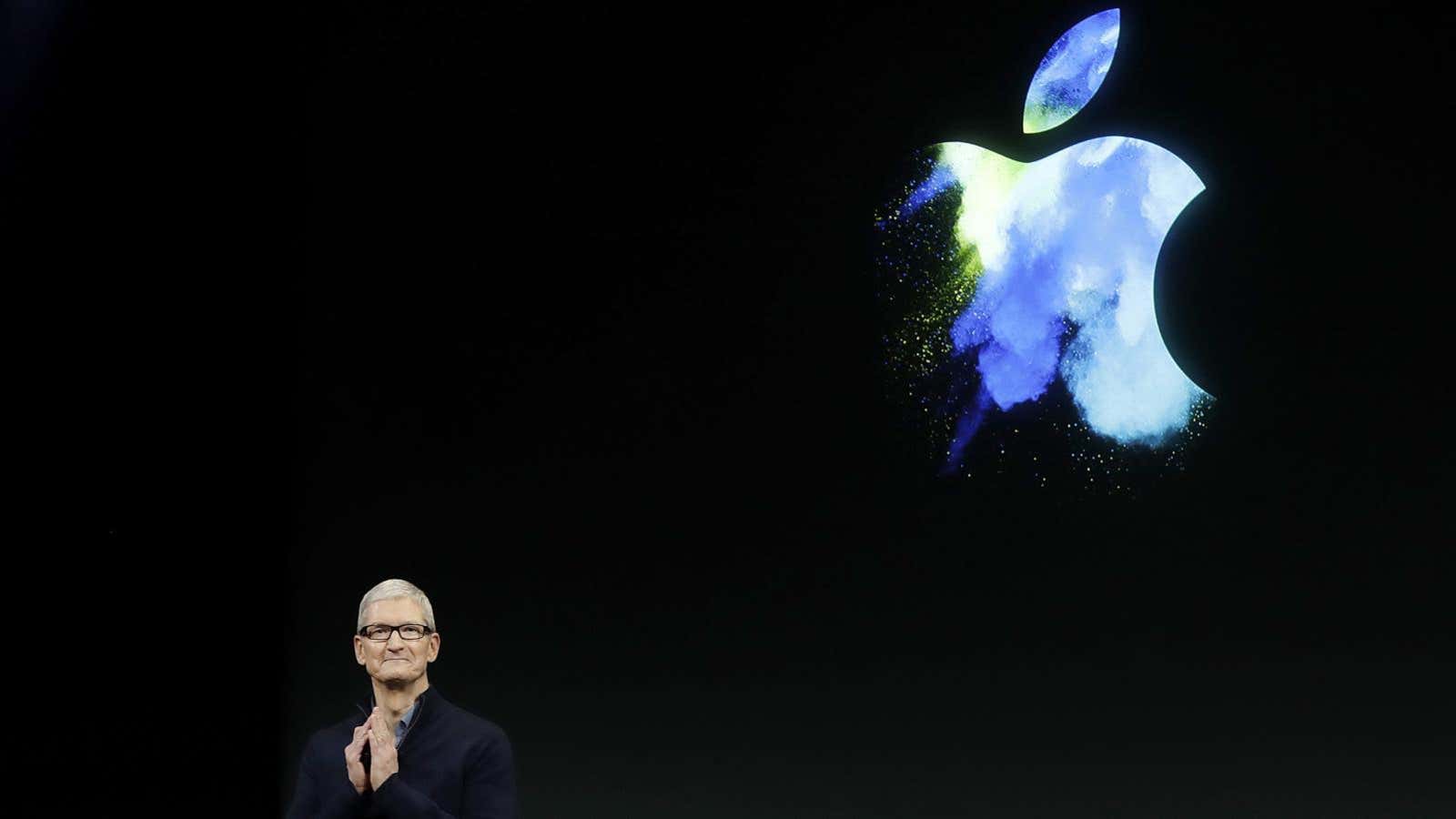In its bid to create the very best technology, Apple decided, in 2014, to employ a full-time philosopher. The company hired Joshua Cohen, formerly a political philosophy professor at Stanford University to work at Apple University, an institution created by Steve Jobs in 2008 to offer employees the kind of training typically available at university programs. The specifics of this university are kept tightly under wraps; Apple specifically prohibited Cohen from talking about his work with Quartz.
Here’s what we know: Apple University is led by Joel Podolny, formerly the dean of Yale University’s School of Management. Its employees include Richard Tedlow, previously a historian of business at Harvard University, and Morten Hansen, a former professor of management at the University of California-Berkeley. The institution is highly secretive; a few employees spoke to the New York Times in 2014 on the condition of anonymity, and described learning how Apple products were comparable to Picasso’s artwork in their “elegant simplicity.”
Otherwise, little is known about the institution. What do its professors do all day, what do they teach to staff, and how is this knowledge integrated into company products?
Initially, Cohen expressed willingness to speak with Quartz about his work at Apple, to explain his daily routine and the research he conducts. But, he said, he would first have to get permission from Apple’s press department. He asked for approval twice, once in October 2018 and once in April 2019, but was denied both times. Quartz also asked Apple’s press office for permission to speak with Cohen, but was denied.
The name “Apple University” suggests an institution of higher education, but in most of academia, it’d be scandalous if an institution prevented a professor from talking to the press. Rob Reich, a political science professor at Stanford University, says a professor at any non-corporate university would not have to ask for permission to speak to the press.
Cohen has given the occasional public lecture while at Apple. Some of these have hinted at what he actually does internally day to day. For example, in 2016, he gave a public talk in Toronto on how pianist Glenn Gould’s embrace of technology allowed him to create even more sublime music to share with a wider audience. It was a version of a talk Cohen originally gave to Apple employees, according to a writer for the music website ludwig-van.com, who was in the audience.
Cohen, whose research and writing focuses on political philosophy and the nature of democracy, is also co-editor of and contributing writer to the Boston Review, a quarterly political and literary magazine. In 2017, he wrote on how New York City’s Central Park is an example of a beautiful public good that allows democracy to flourish. “Central Park thus needed to be a place for the people, and not simply for persons, and thus help to shape a sense of a we,” he wrote.
Knowledge, just like parks, is a public good. From that perspective, censoring a philosopher from speaking to the press is limiting access to public goods, and so limits democratic discourse.
Apple University and its policies are part of a wider trend of academics moving from open university settings to far more closed corporate settings. Countless engineers and computer scientists, for example, aren’t contributing their work to public knowledge, but to the growth of intellectual property owned by private individuals and corporations. As Pacific Science reported earlier this year, more than half of university-hired scientists left academia within five years in the 2010s, whereas it took 35 years for the same percentage to leave in the 1960s.
There are certainly benefits to working at private companies. There can be more funding, for example, and arguably less bureaucracy than at a university. But research conducted in a corporate setting is almost always used for the good of the company, rather than for the value of knowledge in itself. Such ends can distort the nature of academic work; philosophy pursued in search of profit is a pale imitation of philosophy pursued for its own sake. Apple clearly benefits from an in-house philosopher, but in employing him to further corporate ends and preventing him from engaging with the press, it’s clear the company does not appreciate the value of unrestrained philosophical discussion.




